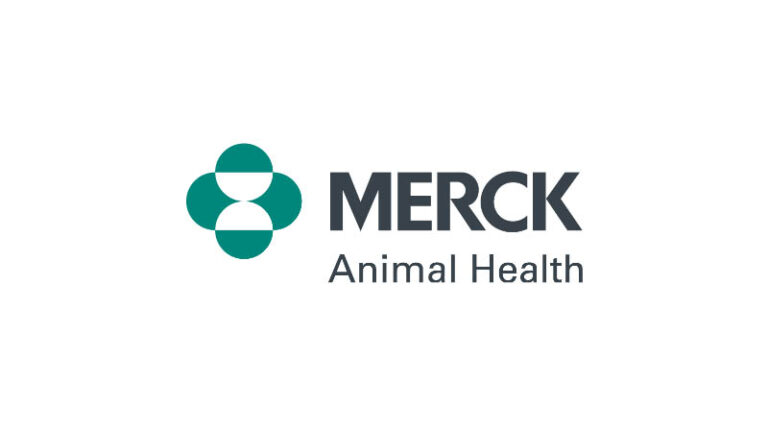
Merck Animal Health Receives Positive Opinion from CVMP for NOBIVAC L6 and NOBIVAC LoVo L6 Vaccines
26 June 2025, Rahway: Merck Animal Health, known as MSD Animal Health outside of the United States and Canada, a division of Merck & Co., Inc., Rahway, N.J., USA (NYSE:MRK), today announced that the European Medicines Agency’s Committee for Veterinary Medicinal Products (CVMP) issued a positive opinion for the NOBIVAC® L6 and NOBIVAC® LoVo L6 vaccines. If the European Commission (EC) adopts the recommendation, the vaccines will be the first and only canine leptospirosis vaccines approved to prevent or reduce mortality, clinical signs, infection, urinary excretion, renal lesions, or renal carriage caused by six different serovars*.
“Recent studies indicate that the prevalence of leptospirosis is on the rise, driven by several interrelated factors. Climate change, for instance, is resulting in increased rainfall and flooding, which create favorable conditions for the spread of the bacteria. Additionally, urbanization and shifts in land use are influencing the population dynamics of reservoir species, such as rodents, further exacerbating the risk of transmission[i],” said Melissa Bourgeois, DVM, PhD, DACVIM, global technical director, Companion Animal vaccines, Merck Animal Health. “The demonstration of efficacy against two new serovars and four additional label claims significantly enhances protection against this expanding risk.”
At primary vaccination NOBIVAC L6 is administered in two shots of one dose of vaccine with an interval of four weeks to dogs from six weeks of age onwards. The first vaccination can be administered from 6 to 9 weeks of age and the second vaccination from 10 to 13 weeks of age and can be given concurrently with NOBIVAC® Rabies. The annual revaccination requires only one dose. This vaccine protects against six serovars including:
- L. interrogans serogroup Canicola serovar Canicola to prevent mortality, renal carriage and renal lesions, and reduce infection, clinical signs and urinary excretion
- L. interrogans serogroup Icterohaemorrhagiae serovar Copenhageni to prevent mortality, and reduce clinical signs, infection, urinary excretion, renal carriage and renal lesions
- L. interrogans serogroup Australis serovar Bratislava to prevent urinary excretion, and reduce infection and clinical signs
- L. kirschneri serogroup Grippotyphosa serovar Bananal/Lianguang to prevent renal carricarrage and renal lesions, and reduce clinical signs, infection, clinical signs and urinary excretion
- L. interrogans serogroup Icterohaemorrhagiae serovar icterohaemorrhagiae to prevent mortality, and reduce infection, clinical signs, renal carriage and urinary excretion,
- L. kirschneri serogroup Grippotyphosa serovar grippotyphosa to prevent urinary excretion and renal carriage, and reduce infection, clinical signs and renal lesions
Canine leptospirosis, caused by various serovars of the bacteria Leptospira, is a significant bacterial infection that affects dogs and can also pose risks to humans. Transmission occurs through direct contact with contaminated water, soil, or food, with the bacteria entering the body via mucous membranes or broken skin. In 2024, the World Small Veterinary Association (WSAVA) updated their guidelines to recommend that in “countries or regions where canine leptospirosis is present, where implicated serogroups are known, and where suitable vaccines are available, vaccination of all dogs against leptospirosis is highly recommended and the vaccines should be considered core in these places.”
While dogs that are frequently outdoors and have access to water bodies are at higher risk, any dog can contract leptospirosis, including those that are primarily indoors. Exposure can occur from contaminated food or water sources, or even through contact with infected wildlife or rodents. Worldwide, the rat is considered the most important reservoir host, and is present in urban, suburban, and rural environments. Clinical signs of leptospirosis can vary widely, ranging from the absence of symptoms to more pronounced indicators such as fever, lethargy, loss of appetite, and muscle pain. In more severe cases, these symptoms may progress to include vomiting, diarrhea, jaundice, uveitis, meningitis, kidney and liver failure, and potentially death.
Based on the CVMP’s recommendation, the EC is expected to issue a decision for marketing authorization in the European Union (EU) by the third quarter of 2025.
Also Read: Five Indians Recognized in 2025 Top Agri-Food Pioneers List by World Food Prize Foundation
📢 If You’re in Agriculture, Make Sure the Right People Hear Your Story.
Have a story the global agriculture industry should hear? From product launches to strategic announcements, Global Agriculture offers unmatched visibility across international agri-business markets. Connect with us at pr@global-agriculture.com to explore editorial and advertising opportunities that reach the right audience, worldwide.






